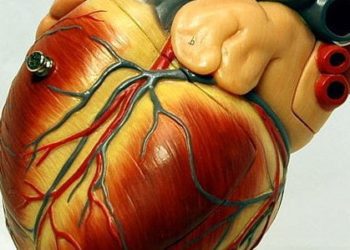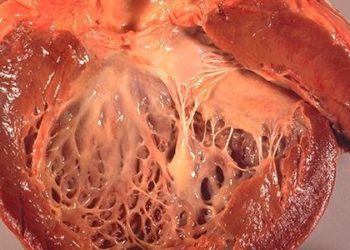Complete revascularization vs. lesion only percutaneous coronary intervention for STEMI
1. In this randomized controlled trial, complete revascularization of eligible lesions in percutaneous coronary intervention (PCI) resulted in a significant improvement in patient-reported quality of life versus revascularization of culprit-only lesions in patients with an ST-elevation myocardial infarction (STEMI) undergoing treatment.
Evidence Rating Level: 1 (Excellent)
In patients who present with ST-elevation myocardial infarction (STEMI), multivessel coronary artery disease (CAD) is common. Previous studies have showed that complete revascularization in STEMI reduces cardiovascular events, due to reduced rates of ischemia-driven revascularization. The current guidelines based on previous research recommend complete revascularization with staged percutaneous coronary intervention (PCI) to reduce risk of death or myocardial infarction in patients with STEMI and multivessel CAD. However, there is a lack of high-quality evidence investigating the effect of complete revascularization on patient-reported quality of life. The Complete vs Culprit-Only Revascularization Strategies to Treat Multivessel Disease After Early Percutaneous Coronary Intervention (PCI) for STEMI, or the COMPLETE trial, was a multinational clinical trial that compared complete revascularization with PCI of all suitable, non-culprit lesions versus PCI of only culprit lesions from 140 primary PCI centers in 31 countries. The primary outcome was patient CAD-related health status, measured using the Seattle Angina Questionnaire (SAD), which assesses frequency of angina, treatment satisfaction, angina stability, physical limitations, and quality of life, with higher scores indicating better disease-specific health status and fewer symptoms. This questionnaire was given to patients at baseline, near or at randomization, 6 months after randomization, and at their final visits, which was a median of 36 months after randomization. Between February 2013 and March 2017, 4041 patients were randomized, 2016 to complete revascularization of all suitable non-culprit lesions, and 2025 to PCI of the culprit lesion only. With respect to the main outcomes, the SAQ-AF (angina frequency) score was increased significantly from baseline in both groups (P<.001), and the complete revascularization group had a significantly higher score than the culprit-lesion only group (difference 0.97 [95% CI, 0.27-1.67]; P=.006). The SAQ summary score, which was an overall measure of angina-related health status, was also increased significantly increased in the complete revascularization group compared to the culprit lesion group at both 6 months and final follow-up. With respect to freedom from angina, at 3 years follow-up, the complete revascularization group had a significantly higher proportion that were free of angina when compared to the culprit-lesion only group (absolute difference, 3.21% [95% CI, 0.69-5.73%]; P=.01). A major limitation of this study was that 14% of health status measurements were missing from the final encounter from each group, which increases the risk of type II error. Overall, the main COMPLETE trial showed that complete revascularization reduced major cardiovascular events compared with culprit lesion-only PCI. This secondary analysis showed that there was not only an improvement of cardiovascular outcomes, but also a significant improvement in patient-reported quality of life as per the SAQ, including number of patients completely free from angina, as well as the overall summary score. These findings may help guide clinicians in future clinical decisions regarding revascularization in patients who experience a STEMI.
Click to read the study in JAMA Cardiology
Image: PD
©2022 2 Minute Medicine, Inc. All rights reserved. No works may be reproduced without expressed written consent from 2 Minute Medicine, Inc. Inquire about licensing here. No article should be construed as medical advice and is not intended as such by the authors or by 2 Minute Medicine, Inc.









